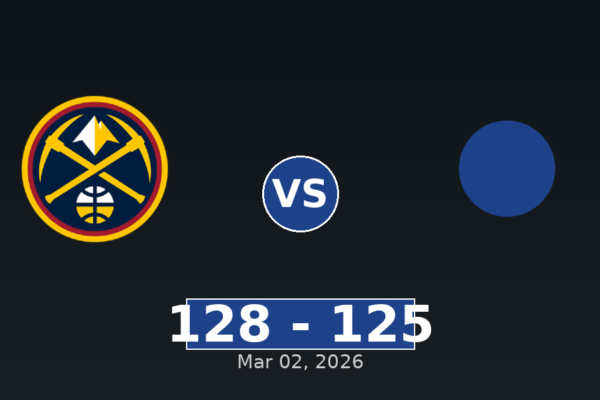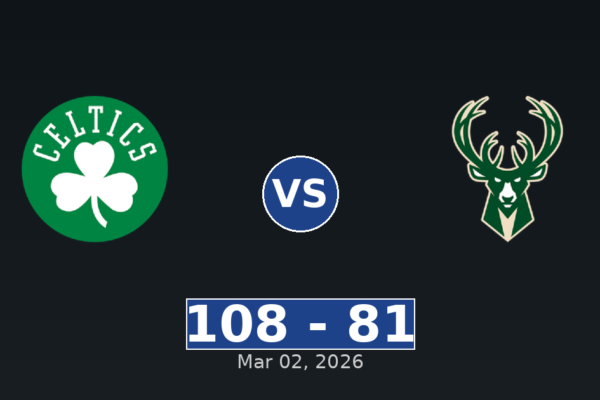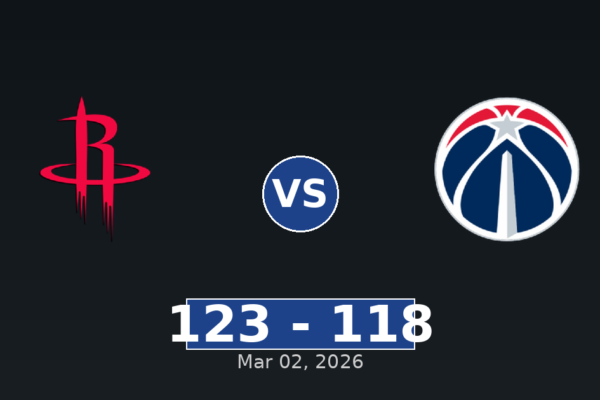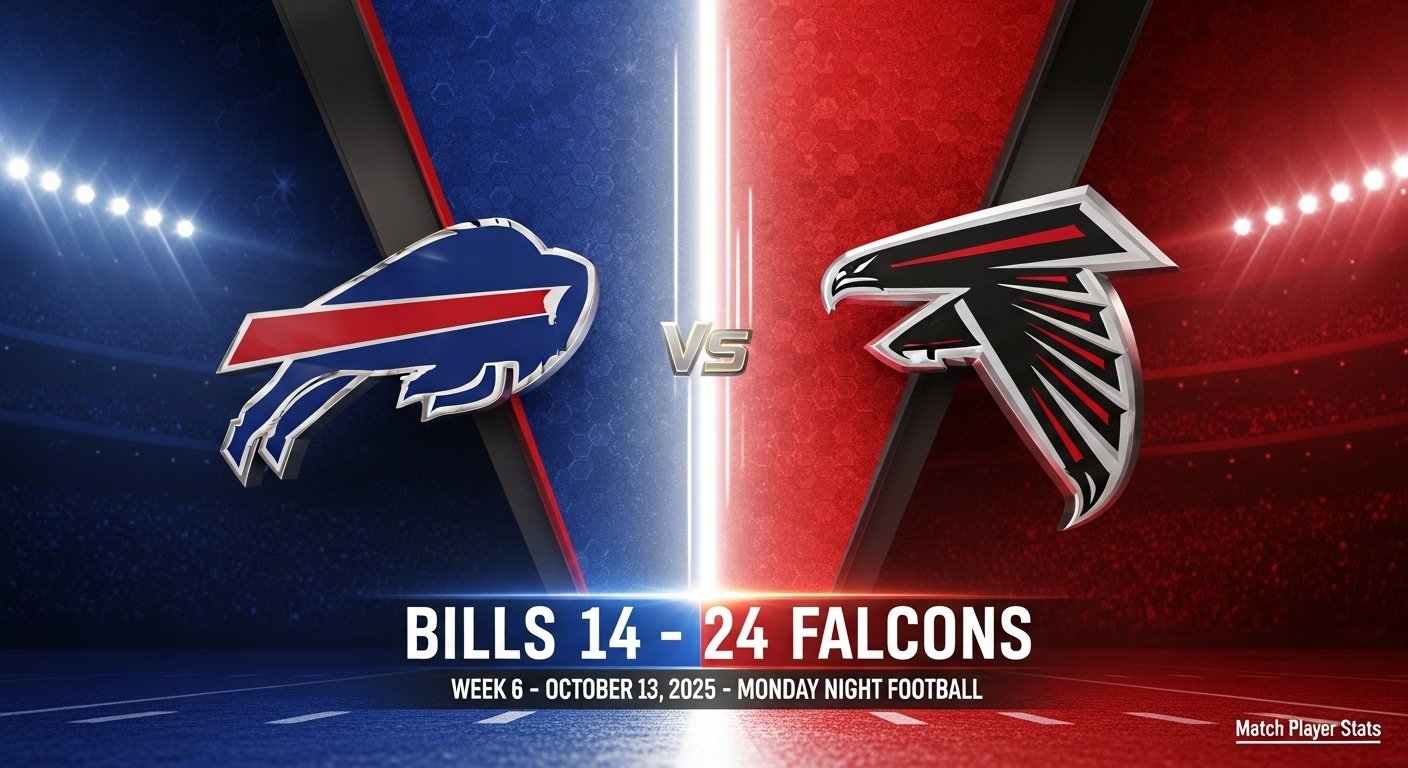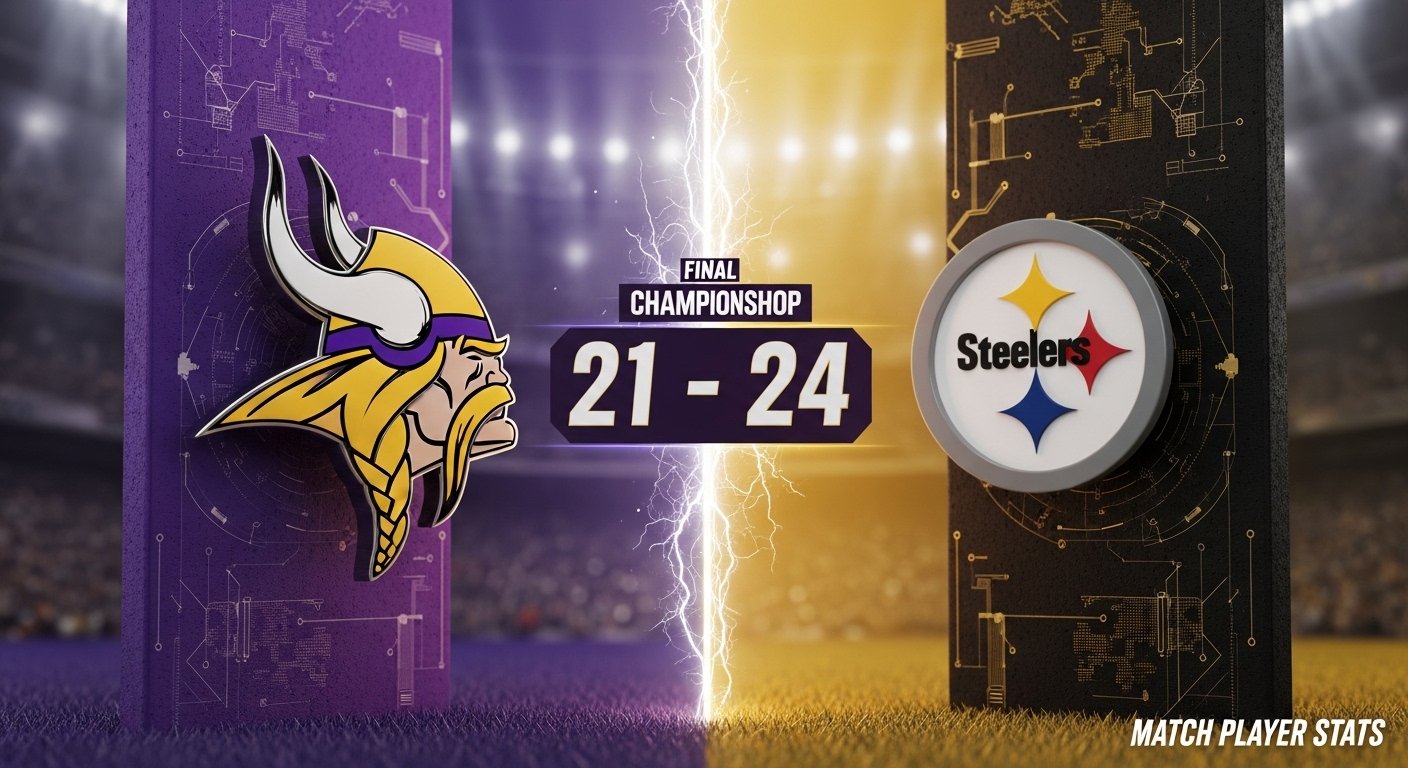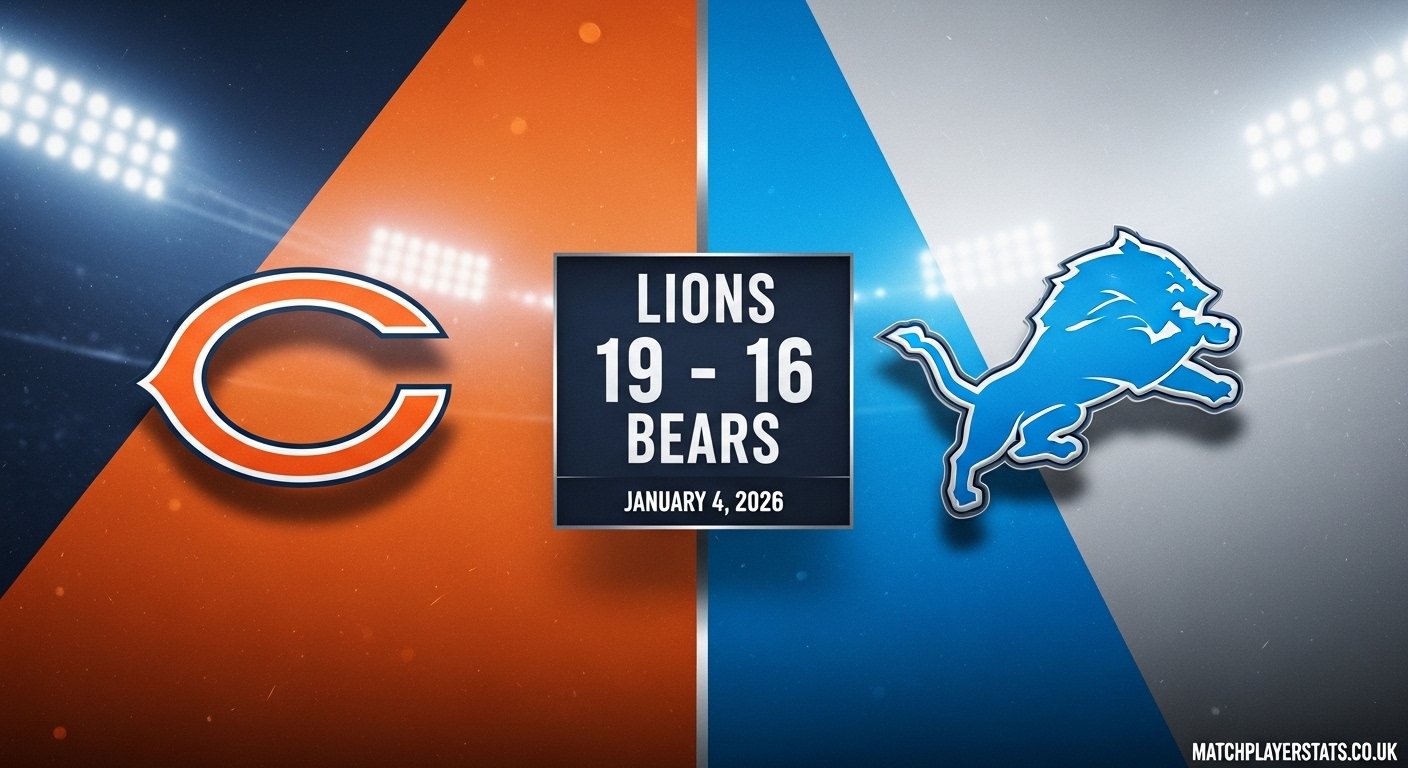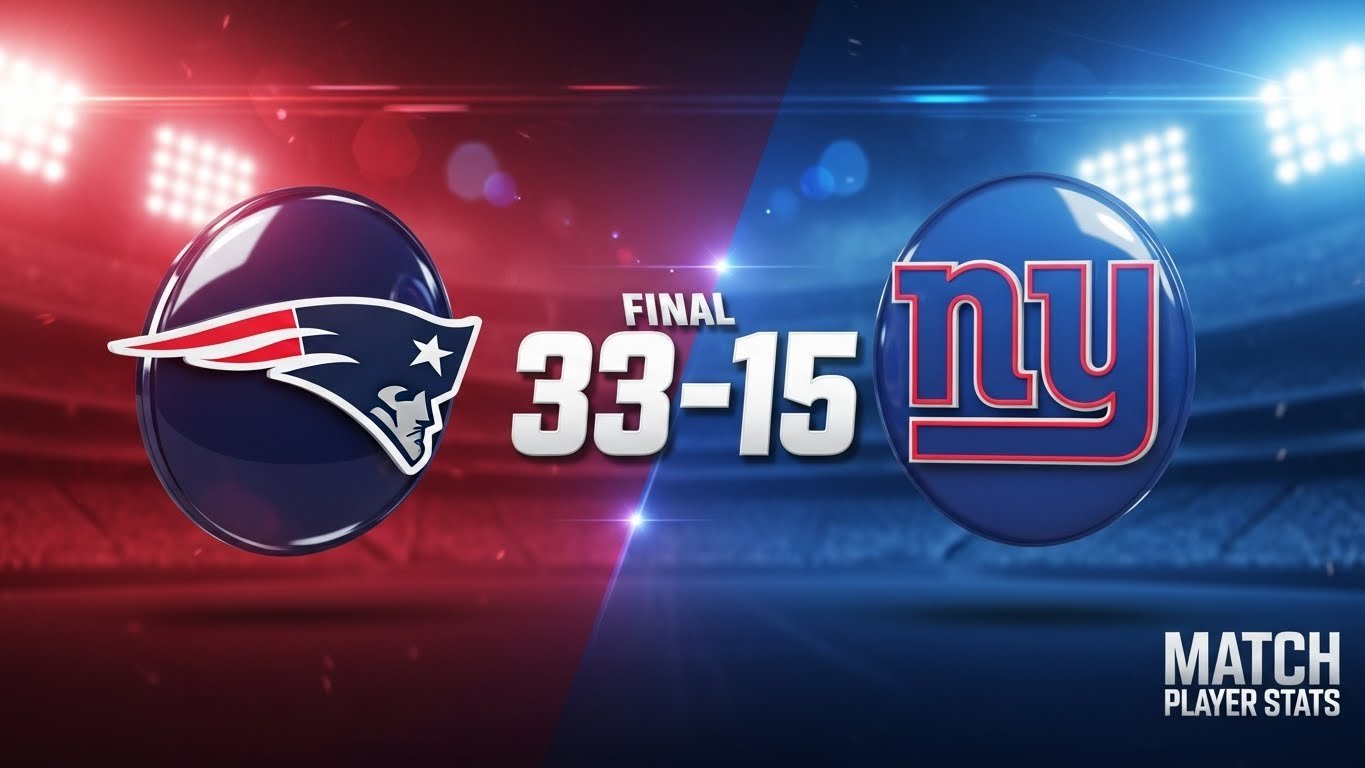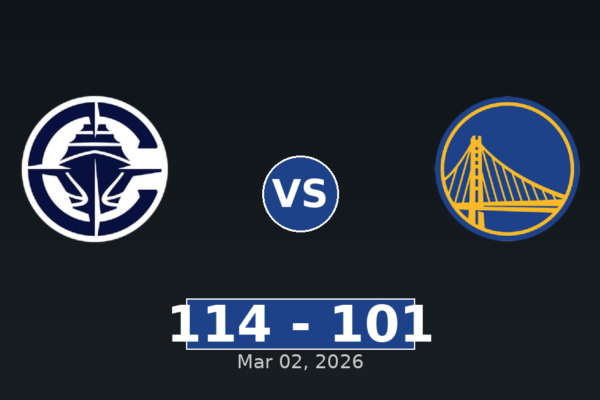
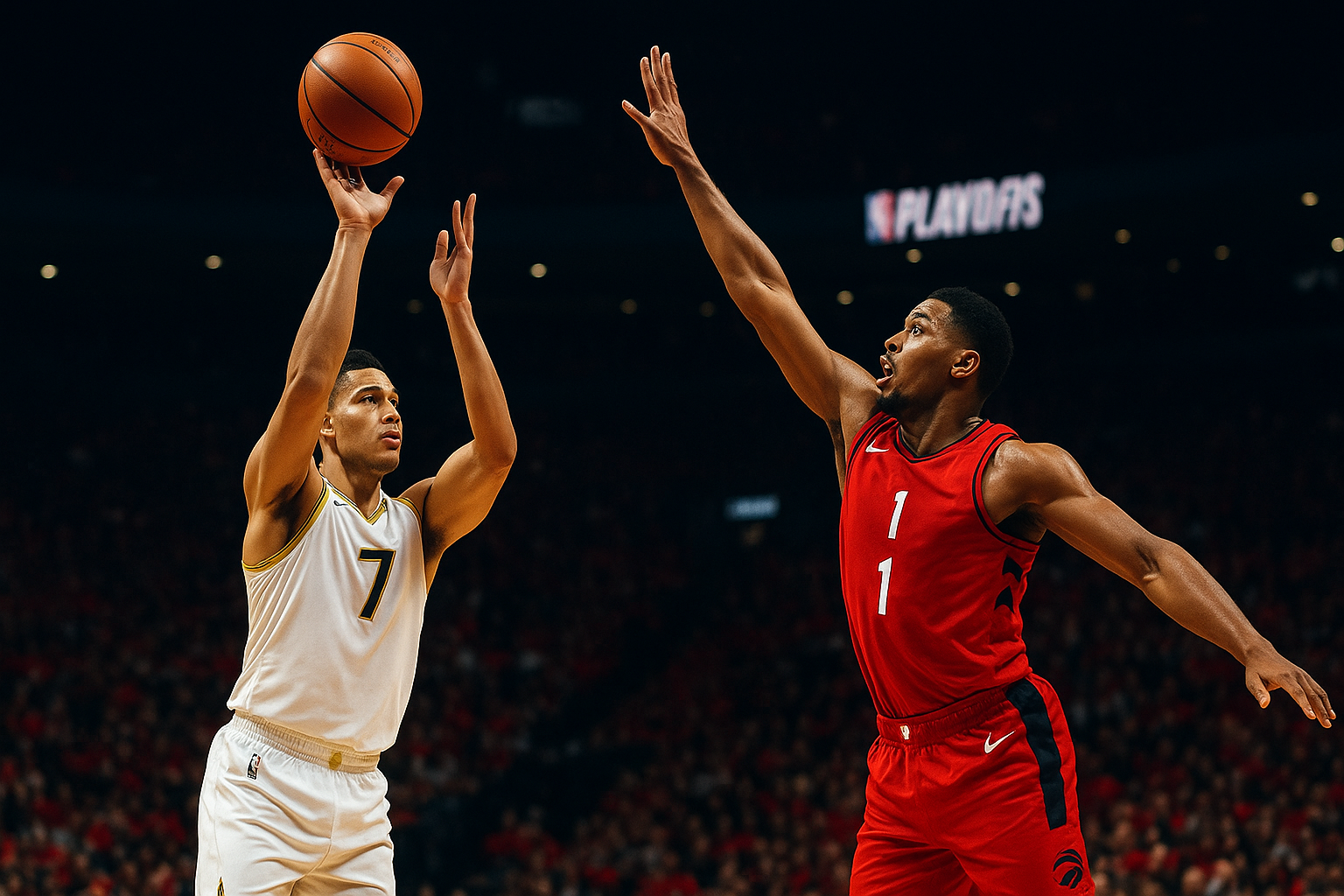
Golden State Warriors vs Houston Rockets Match Player Stats (May 4, 2025)
Buddy Hield erupted for 33 points on 12-of-15 shooting with nine three-pointers, Stephen Curry delivered 14 fourth-quarter points to finish with 22, and the Warriors eliminated Houston 103-89 in a road Game 7 on May 4, 2025, at Toyota Center. Amen Thompson led the Rockets with 24 points in this winner-take-all contest that sent the seventh-seeded Warriors to the Western Conference semifinals.
Golden State advanced to face Minnesota after eliminating the second-seeded Rockets in the fifth playoff series between these franchises. All five postseason matchups dating back to 2015 have gone to the Warriors.
Table of Contents
Team Performance Comparison
Efficiency separated these teams in this first-round elimination game. Golden State shot 47.6% from the field and 41.9% from three-point range, while Houston shot 40.5% overall and 33.3% from beyond the arc.
| Team Stat | Warriors | Rockets | Difference |
|---|---|---|---|
| Field Goal % | 47.6% | 40.5% | +7.1% |
| Three Point % | 41.9% | 33.3% | +8.6% |
| Three Pointers Made | 18 | 6 | +12 |
| Effective FG% | 58.5% | 44.0% | +14.5% |
| True Shooting % | 59.1% | 47.7% | +11.4% |
| Offensive Rating | 116.2 | 100.4 | +15.8 |
| Defensive Rating | 100.4 | 116.2 | -15.8 |
| Assists | 24 | 14 | +10 |
| Turnovers | 7 | 11 | -4 |
| Rebounds | 38 | 52 | -14 |
Hield alone made more three-pointers (9) than Houston’s entire roster (6), setting an NBA playoff Game 7 record for threes in an elimination game. Golden State connected on 18 treys compared to six for the Rockets, creating a 36-point advantage from beyond the arc that exceeded the 14-point margin.
On the glass, Houston controlled the boards 52-38, including a 14-3 edge on offensive rebounds. The Rockets grabbed second chances at a 28.6% offensive rebounding rate throughout the night. Those extra possessions went to waste. Houston shot 44.0% effective field goal percentage, turning second-chance opportunities into empty trips that deflated the crowd of 18,055.
Ball movement told the story. Golden State’s 61.5% assist rate compared to Houston’s 41.2% showed one team sharing the ball while the other devolved into isolation basketball. With just 14 total assists on 34 made field goals, Houston’s offense stalled under elimination pressure.
Golden State Starting Five
| Player | MIN | PTS | FGM-FGA | 3PM-3PA | REB | AST | STL | BLK | TO | +/- |
|---|---|---|---|---|---|---|---|---|---|---|
| Buddy Hield | 37:00 | 33 | 12-15 | 9-11 | 3 | 3 | 1 | 2 | 0 | +17 |
| Stephen Curry | 45:31 | 22 | 8-16 | 4-10 | 10 | 7 | 2 | 2 | 2 | +16 |
| Jimmy Butler | 44:41 | 20 | 7-13 | 2-3 | 8 | 7 | 1 | 0 | 1 | +10 |
| Draymond Green | 39:56 | 16 | 7-15 | 2-8 | 6 | 5 | 1 | 2 | 1 | +18 |
| Brandin Podziemski | 39:42 | 9 | 4-12 | 1-7 | 3 | 2 | 0 | 1 | 2 | +5 |
Buddy Hield’s Redemption Performance
After scoring zero points in Game 6 and four in Game 5, Hield entered Game 7 having logged fewer than 18 minutes in four of the first six games. Coach Steve Kerr kept him in the starting lineup after scoring just four combined points across the previous two games.
In response, Hield delivered his best playoff performance. He shot 80% from the field and 81.8% from three-point range on high volume, carrying the offense in the first half with 22 points while Curry was held to three. A 42-foot buzzer beater capped the first quarter, silencing the Houston crowd and giving the Warriors a 23-19 lead. Part of 13 first-quarter points, that shot gave Golden State early control.
“Just trying to seize the moment and relish the moment and just be in the moment at the same time,” Hield said after the game. “Just trying to be myself. But tonight was fun.”
Kerr praised more than the shooting: “This was not just a lights-out shooting performance for Buddy. It was a two-way performance. I thought his defense was fantastic.”
Golden State acquired Hield in a midseason trade for games like this. He punished Houston’s Curry-focused defense by hitting 9-of-11 from three, spacing the floor and making open looks throughout this first-round clincher.
Stephen Curry’s Fourth Quarter Takeover
Curry went scoreless in the first quarter. Just three points by halftime. Through three quarters, only eight points. How did Curry respond? By taking over in the fourth.
Back-to-back buckets opened the final period, including a deep three-pointer that pushed the lead to 13 and energized the Warriors’ bench. Curry drove past Jabari Smith Jr. for a layup, then nailed a contested three on the next possession. After Houston cut into the lead, Curry hit a dagger three with around three minutes left to make it 91-74.
Fourteen points in 12 minutes. Curry performed his signature “night night” celebration as red-clad Rockets fans streamed for the exits.
Playing at 37 years old with an injured right thumb requiring a splint, Curry grabbed 10 defensive rebounds and added two steals and two blocks. Curry’s 21.3% usage rate was lower than normal for an elimination game, suggesting he picked his spots deliberately. Houston’s defense focused on taking him away early, which opened opportunities for Hield and Green. After the Rockets adjusted in the fourth, Curry punished them.
Jimmy Butler and Draymond Green
Butler logged 44 minutes and finished with 20 points, eight rebounds, and seven assists. Butler posted 65.8% true shooting and was efficient without dominating the ball. With a 24.1% assist rate creating offense for teammates, Butler maintained steady production reflected in his plus-10 rating during the game’s slow pace.
Since his debut on February 8, the Warriors went 28-11 with Butler in the lineup. Acquiring him from Miami at the deadline gave Golden State another veteran who thrives under pressure, and his two-way ability showed throughout this series.
Green led all starters with a plus-18 while scoring 16 points. Early energy set the tone: forcing a travel on Alperen Sengun, making a cutting layup for the first basket, contesting Jalen Green at the rim, then hitting a three for a quick 5-0 lead. Green anchored Golden State’s defense all night and posted a 99 defensive rating while finishing with six rebounds, five assists, two blocks, and one steal.
Despite taking eight threes, Green shot 53.3% effective field goal percentage. Houston limited Curry early, but the Rockets weren’t prepared for Green and Hield to beat them.
Warriors Advanced Metrics
| Player | TS% | eFG% | USG% | ORtg | DRtg |
|---|---|---|---|---|---|
| Buddy Hield | 110.0% | 110.0% | 20.5% | 125.7 | 102.9 |
| Stephen Curry | 65.2% | 62.5% | 21.3% | 117.4 | 101.2 |
| Jimmy Butler | 65.8% | 61.5% | 17.2% | 113.1 | 101.2 |
| Draymond Green | 53.3% | 53.3% | 20.3% | 121.1 | 98.7 |
Hield’s 125.7 offensive rating means Golden State scored 125.7 points per 100 possessions when he was involved. His 110% effective field goal percentage reflects the massive value of nine three-pointers on 11 attempts.
Golden State’s bench contributed almost nothing. Kevon Looney played 11 minutes and scored three points. Moses Moody went scoreless in 10 minutes. Jonathan Kuminga failed to score in seven minutes. Kerr rode his starters hard: four players logged over 39 minutes each. Under Kerr, the Warriors improved to 9-3 in elimination games, and they’ve never lost in the first round with him as head coach.
Houston Rockets Starting Five
| Player | MIN | PTS | FGM-FGA | 3PM-3PA | REB | AST | STL | BLK | TO | +/- |
|---|---|---|---|---|---|---|---|---|---|---|
| Amen Thompson | 37:10 | 24 | 9-16 | 0-1 | 9 | 3 | 1 | 1 | 0 | -11 |
| Alperen Sengun | 39:56 | 21 | 9-23 | 1-1 | 14 | 5 | 1 | 1 | 3 | -12 |
| Fred VanVleet | 43:52 | 17 | 6-13 | 3-6 | 7 | 3 | 2 | 0 | 3 | -5 |
| Dillon Brooks | 35:32 | 8 | 3-9 | 0-3 | 2 | 1 | 1 | 0 | 2 | -6 |
| Jalen Green | 29:46 | 8 | 3-8 | 0-2 | 4 | 1 | 0 | 1 | 0 | -6 |
Thompson and Sengun competed hard. Houston’s role players faltered in the win-or-go-home situation.
Thompson attacked the rim aggressively all night and shot 56.3% from the field. He grabbed nine rebounds and brought relentless energy that sustained Houston’s competitiveness longer than the final score suggests.
Sengun worked tirelessly: 14 rebounds and five assists while carrying a 31.8% usage rate. Efficiency plagued him. Sengun shot 9-of-23 from the field and failed to score at the rate Houston needed. Multiple reports noted he “missed several easy shots” that could have kept the game close. For the go-to option in an elimination game, Sengun’s 42.4% true shooting was too low. Those misses cost the Rockets dearly in a game decided by 14 points.
Jalen Green’s Disappearance
Eight points. Eight shots. Game 7 at home.
For a player who dropped 38 points in Game 2 to even the series, this performance fell far short in this elimination game. Green’s 14.1% usage rate tells the story: he wasn’t looking for his shot. Compare that to Curry’s 21.3%, Hield’s 20.5%, Draymond Green’s 20.3%, and even bench player Tari Eason’s 25.0%. Lead scorers in elimination games don’t shrink like this. Green was passive at the worst possible time.
VanVleet carried Houston with 25, 29, and 26 points in Games 4, 5, and 6 to force this Game 7. He cooled to 17 points on 6-of-13 shooting. VanVleet’s 11.1% assist rate in 44 minutes was too low for a starting point guard. As Houston’s offensive system collapsed under elimination pressure, it started with VanVleet’s inability to generate offense for teammates.
Brooks finished with eight points on 3-of-9 shooting. Posting 40.5% true shooting and an 80 offensive rating, Brooks added to Houston’s offensive struggles rather than alleviating them. Secondary scoring never materialized.
Rockets Advanced Metrics
| Player | TS% | eFG% | USG% | ORtg | DRtg |
|---|---|---|---|---|---|
| Amen Thompson | 64.4% | 56.3% | 21.8% | 98.6 | 116.9 |
| Alperen Sengun | 42.4% | 41.3% | 31.8% | 101.3 | 115.8 |
| Fred VanVleet | 61.2% | 57.7% | 16.3% | 106.1 | 113.6 |
| Jalen Green | 42.9% | 37.5% | 14.1% | 105.4 | 114.0 |
| Dillon Brooks | 40.5% | 33.3% | 15.4% | 109.0 | 117.9 |
From the bench, Houston got minimal help. Tari Eason posted a 25.0% usage rate yet generated a 69.0 offensive rating. Steven Adams grabbed seven rebounds while scoring three points on 1-of-4 shooting. Jabari Smith Jr. added three points in 12 minutes.
Houston’s 41.2% assist percentage was 20 points lower than Golden State’s 61.5% mark. In elimination situations, Houston’s offense devolved into one-on-one basketball, playing directly into the Warriors’ veteran defensive schemes. With limited ball movement, Houston’s talented scorers had nowhere to go as the Warriors loaded up defensively on individual matchups.
Scoring by Quarter
| Quarter | Warriors | Rockets |
|---|---|---|
| First | 23 | 19 |
| Second | 28 | 20 |
| Third | 19 | 23 |
| Fourth | 33 | 27 |
| Final | 103 | 89 |
Behind Hield’s 22 first-half points, Golden State built a 12-point halftime lead. Houston cut it to three in the third quarter, creating tension at Toyota Center as the home crowd sensed a comeback.
Curry owned the fourth quarter. Opening with a 5-0 run, the Warriors then went on a 17-4 run over 6:21 that effectively ended the game and silenced the building. After Curry hit that dagger three to make it 91-74 with three minutes left, fans started heading for the exits.
Needing to push the pace, Houston scored only 27 points in the final quarter. Houston’s offense completely stalled under the pressure of a must-score situation.
Series Context and Historical Significance
This was the fifth playoff series between these franchises. Golden State has won all five. From 2015 to 2019, the Warriors beat James Harden-led Rockets teams four times, including the famous 2018 Western Conference Finals Game 7 that sent Golden State to the NBA Finals.
Before this series, Fred VanVleet said “this ain’t that team,” referring to those Harden-era Rockets. After the game, Draymond Green responded: “It’s that organization though.” Regardless of personnel, the Warriors have dominated this matchup.
Entering as the seventh seed facing the second-seeded Rockets, who won 52 games during the regular season, Golden State became just the seventh No. 7 seed in NBA history to advance to the conference semifinals. After taking a 3-1 series lead, they survived Houston’s two-game comeback to close it out on the road.
In NBA history, home teams win 74% of Game 7s (112 wins out of 151 total). Bucking that trend, the Warriors won in a hostile environment without Gary Payton II, who sat out with an illness that coach Steve Kerr described as having him “sick as a dog.” Curry played through a right thumb injury requiring a splint. Neither absence nor injury stopped Golden State from executing in the biggest moments.
Key Statistical Differences
Three-point shooting decided this game. Golden State connected on 18 threes at 41.9% while Houston made six at 33.3%. From beyond the arc alone, that 36-point advantage exceeded the 14-point margin of victory.
Ball movement separated the teams. Golden State’s 24 assists on 39 made field goals (61.5% assist rate) compared to Houston’s 14 assists on 34 made field goals (41.2% assist rate) showed one offense flowing while the other stagnated into contested jumpers and forced drives.
Turnovers favored Golden State 11-7. Taking care of the ball at a 7.5% turnover rate, the Warriors protected possessions while Houston turned it over at 10.6%. In tight NBA playoff games where possessions matter, those extra opportunities helped the Warriors stay ahead.
Houston grabbed offensive rebounds at a 28.6% rate throughout the night. Those extra possessions should have kept the Rockets competitive. Shooting 44.0% effective field goal percentage, second chances resulted in empty possessions. Houston generated 14 offensive rebounds and failed to convert them during the third quarter, a stretch where the Rockets needed to climb back.
Warriors Advance to Western Conference Semifinals
Golden State moved on to face Minnesota. Game 1 was scheduled for Tuesday night at Target Center in Minneapolis. Under Kerr, the Warriors improved to 9-3 in elimination games. They’ve never lost in the first round with him as head coach.
Golden State’s system-based approach characterized this series. In Game 7, their 61.5% assist rate reflected the ball movement and offensive flow that has become the franchise identity over the past decade. That organizational culture shows at every level. Even the Memphis Grizzlies vs Golden State Warriors match player stats from Summer League play demonstrated similar principles, with the Warriors’ young players posting 18 assists in a dominant performance.
Knocking off the second seed on the road in a winner-take-all game, this seventh-seeded team proved something. Curry, Green, Butler, and Hield all produced in the fourth quarter while Houston’s young core struggled. The Warriors’ championship core showed in crunch time: Curry scored 14 fourth-quarter points, Butler stayed aggressive, and Green anchored the defense through 40 minutes of physical basketball.
Golden State’s bench remains a concern. Moses Moody and Jonathan Kuminga combined for zero points in 18 minutes. Against better teams in later rounds, that won’t be sustainable. If the starting five maintains this level and Hield provides even a fraction of this Game 7 performance, the Warriors can compete with anyone.
For Houston, this marked a painful end to a promising season. After winning 52 games, securing the second seed, and fighting back from 3-1 down to force Game 7, the Rockets failed to execute at the highest level. Jalen Green’s passive performance and the team’s offensive breakdown were the primary reasons for elimination.
Kerr’s decision to maintain Hield in the starting lineup after two straight scoreless games was vindicated. Hield’s historic nine-three-pointer performance gave Golden State the scoring punch they needed while Curry was held quiet early. After Curry took over in the fourth with 14 points, the combination was too much for Houston.
Five series, five Warriors victories. From the mid-2010s dynasty years to this 2025 first-round matchup, the Warriors vs Rockets playoff rivalry has gone exclusively to Golden State.

